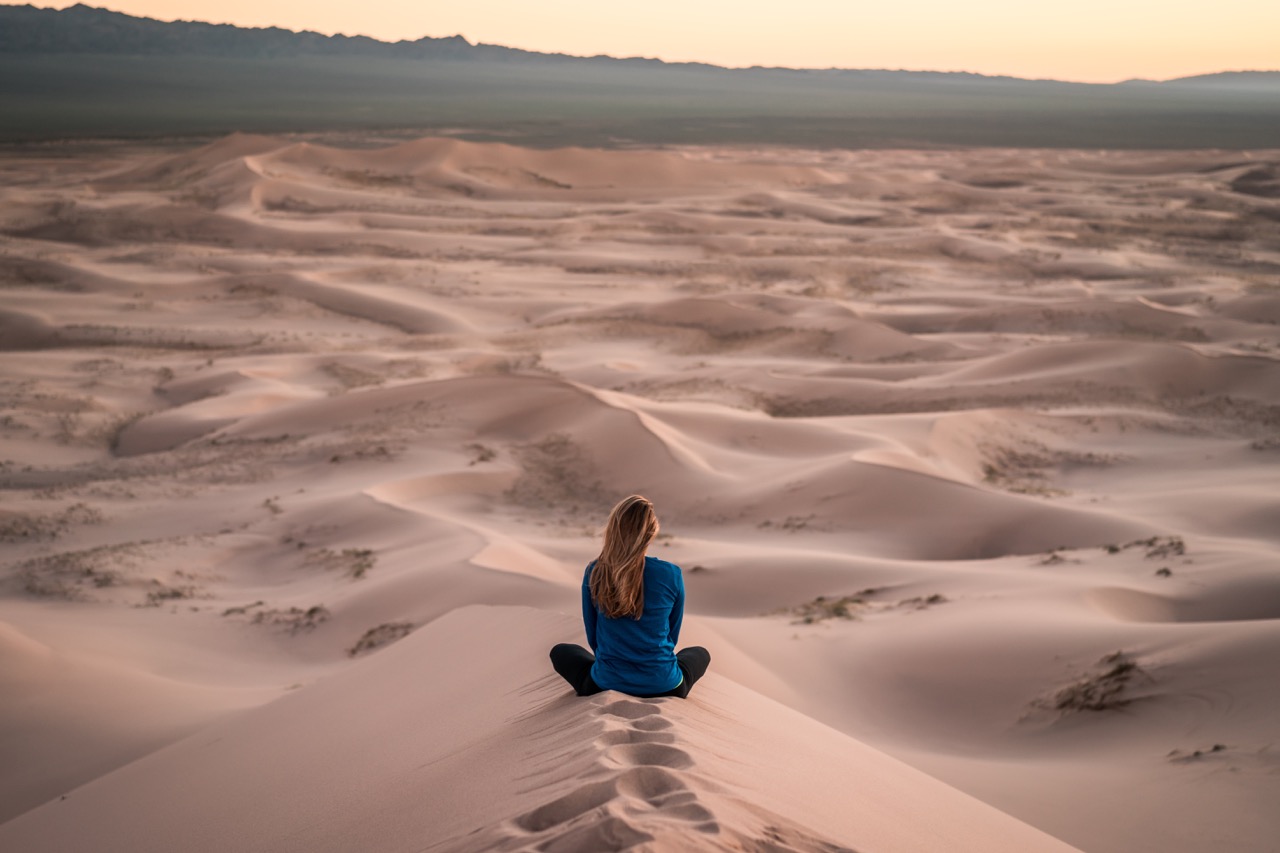In an ever-connected world where our attention is continuously pulled in different directions, the concept of solitude might seem foreign, or even intimidating. Yet, an increasing body of research suggests that solitude – the state of being alone without feeling lonely – holds immense potential in boosting creativity and productivity. As we delve into this topic, we aim to explore the profound effects of solitude on our minds, its transformative influence on our creative prowess, and how it can make us more productive. Did you know that many famous creatives, including Einstein, Picasso, and Beethoven, relied heavily on solitude to produce their groundbreaking works? If solitude was their secret ingredient, could it be yours too? Let’s find out.
Understanding Solitude: More Than Just Being Alone
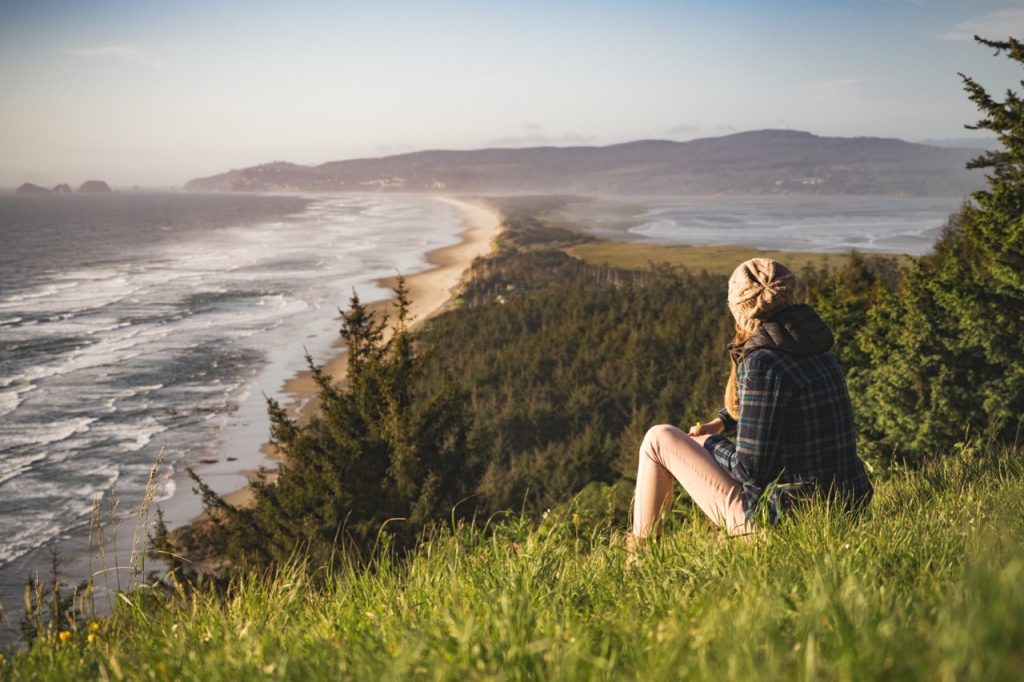
What is Solitude?
Solitude, at its core, is the state of being alone, usually by choice. But it is much more than just physical isolation. It is a profound and enriching experience that allows one to engage in deep introspection, reflect on personal experiences, and tap into the reservoir of their own thoughts and ideas. Unlike loneliness, which is often a feeling of unwanted isolation, solitude is a voluntary and often desired state that can lead to significant personal growth and development.
Solitude vs. Loneliness: The Key Differences
It’s crucial to understand the difference between solitude and loneliness. While solitude refers to being alone without feeling lonely, loneliness is a negative emotional state that stems from feeling isolated or disconnected from others, even when surrounded by people. The crucial distinction lies in the aspect of choice: solitude is usually chosen, while loneliness is not. When embraced, solitude can be a positive and empowering experience. It gives us the space we need to think clearly, understand ourselves better, and nurture our mental and emotional wellbeing.
Experience Solitude with Solitaree
Solitaree, as a unique travel company, offers an exceptional opportunity to experience the essence of solitude in its most authentic form. Specialising in hermit experiences, Solitaree enables travellers to access remote and pristine locations across the globe, providing them with the rare chance to disconnect from the incessant chatter of the world and reconnect with their inner selves. Our hermit experiences are not about isolation for isolation’s sake, but about creating a space for introspection, contemplation, and personal growth. It is in these quiet moments of solitude that you are given the chance to discover new aspects of your own personality, ignite your creativity, and boost your productivity. In the words of philosopher Paul Tillich, “Language… has created the word ‘loneliness’ to express the pain of being alone. And it has created the word ‘solitude’ to express the glory of being alone.” Through our hermit experiences, we invite you to explore this glory.
The Science of Solitude: Unravelling the Brain’s Response

How Solitude Impacts the Brain
Solitude holds a unique place in the realm of neuroscience. When we distance ourselves from the constant stimuli and distractions of our interconnected world, our brain gets the opportunity to shift its focus inward and engage in what scientists call ‘self-referential thought’. This process includes daydreaming, introspection, and self-reflection – activities that are essential for understanding our thoughts, emotions, and behaviours. It gives the brain the much-needed time and space to unwind, regenerate, and align its functions more efficiently.
Research Insights: Solitude and Enhanced Brain Function
Emerging research in neuroscience suggests that solitude can indeed enhance brain function. A study published in the journal ‘Neuron’ showed that periods of solitude and silence could lead to the creation of new cells in the hippocampus, a region of the brain associated with learning, memory, and emotions. The growth of these cells could potentially lead to improved memory and emotional health.
Another interesting line of research indicates that solitude can stimulate the default mode network (DMN) in our brain. The DMN is active when our mind is at rest and not focusing on the outside world. It’s during these moments that we engage in self-reflection and creative thinking, further supporting the idea that solitude can indeed boost our creativity.
Moreover, solitude provides a break from external social pressures, allowing the brain to relax and reducing the risk of stress and anxiety. This restful state not only promotes mental well-being but can also enhance cognitive abilities such as attention, concentration, and productivity.
In the words of neuroscientist Marc Berman, “Interacting with other people puts a strain on cognitive resources, but solitude allows you to replenish them.” In essence, embracing solitude could be one of the most effective ways to keep our brains healthy, sharp, and resilient.
Solitude and Creativity: The Symbiotic Relationship
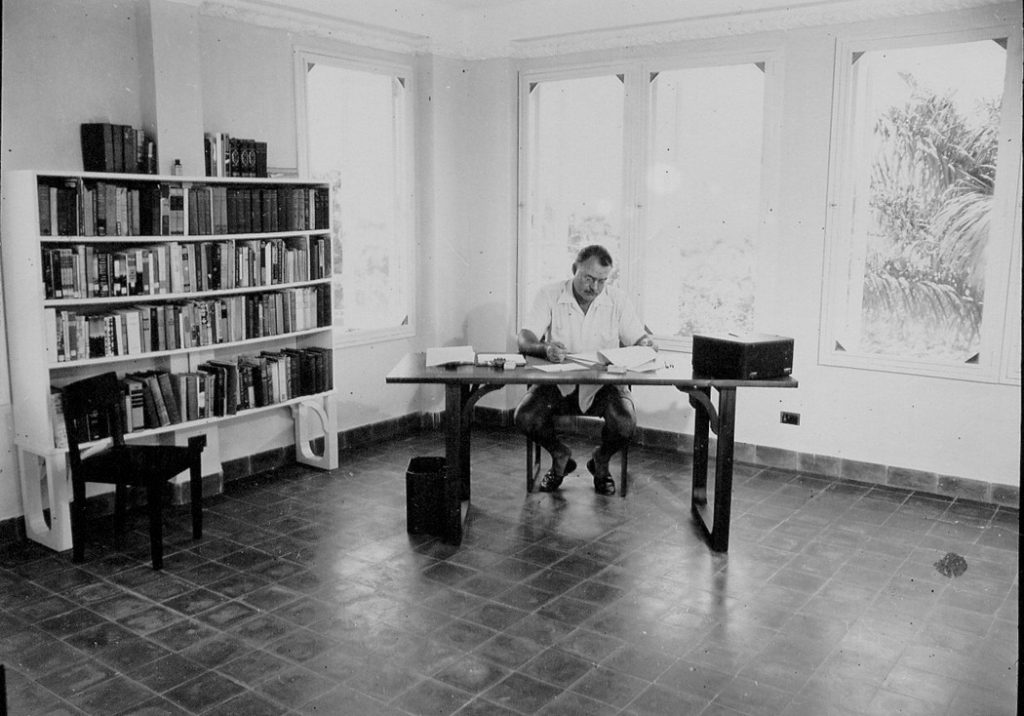
The Solitude-Creativity Connection
Solitude and creativity often go hand in hand. In moments of quiet, without the noise and interruptions of our everyday lives, our minds are free to wander, dream, and innovate. Solitude allows us to engage more deeply with our thoughts, offering the mental space required for creative insights to surface.
Research has consistently shown that solitude can significantly enhance creative thinking. When we’re alone, our brains have the chance to reflect, contemplate, and, importantly, make unique connections between different ideas. This cognitive process, often referred to as “divergent thinking”, is at the heart of creativity. Solitude nurtures this process, allowing us to diverge from conventional thought patterns and come up with original, innovative ideas.
Inspiring Examples: Solitude Fuelling Creativity
The correlation between solitude and creativity is not a novel concept. Throughout history, many renowned thinkers, artists, writers, and inventors have recognised and exploited the creative potential of solitude. Albert Einstein once said, “The monotony and solitude of a quiet life stimulates the creative mind.” His ground-breaking theory of relativity was born out of hours of solitary contemplation.
Similarly, the famous writer Ernest Hemingway often extolled the virtues of solitude in nurturing his creativity. He was known to write in the early hours of the morning to avoid distractions and to tap into his creative mind in its most solitary state.
In more recent times, Bill Gates, the co-founder of Microsoft, is known for taking ‘think weeks’ where he retreats into solitude to read, reflect, and come up with new ideas.
Backing it up: The Science Behind Creativity and Solitude
The creativity-enhancing effect of solitude is well-documented in scientific literature. For instance, a study published in the ‘British Journal of Psychology’ found that solitude can facilitate creativity, especially for individuals who are more introverted.
Furthermore, research led by psychologist Mihaly Csikszentmihalyi reveals that many people report having creative insights during periods of solitude. In these moments of quiet, individuals can engage in deep reflection, allowing creative ideas to flourish.
In conclusion, solitude doesn’t just allow creativity to happen; it actively encourages it. By giving us the space to think, reflect, and dream, solitude is a powerful catalyst for creative thought. Whether you’re an artist, a scientist, or someone looking to infuse a little more creativity into your life, embracing solitude could be a step in the right direction.
Solitude and Productivity: The Pathway to Efficient Work

The Solitude-Productivity Link
Just as solitude can stimulate creativity, it can also enhance productivity. In today’s interconnected world, we are often swamped with a multitude of distractions – notifications, emails, calls, and social media updates – that can severely hinder our ability to concentrate. Solitude offers a respite from these constant interruptions, enabling us to fully engage with our tasks and bolster our productivity.
In the quietude of solitude, we can better focus on our tasks, plan our work, and execute our goals without distraction. Solitude gives us the chance to tune into our thoughts, assess our priorities, and work more efficiently towards our objectives. This increased focus and attentiveness can significantly boost our productivity levels, allowing us to achieve more in less time.
The Role of Solitude in Decision Making and Problem Solving
Beyond improving focus and productivity, solitude also plays a pivotal role in effective decision-making and problem-solving. With the absence of external influences and opinions, solitude allows us to reflect on our challenges more objectively. This freedom to think and reflect independently can lead to more innovative solutions and well-considered decisions.
Moreover, solitude provides us with the space to reflect on our actions and learn from our mistakes. This self-reflective process is crucial for personal growth and continuous improvement, leading to better problem-solving skills and decision-making capabilities.
Research and Examples Supporting the Power of Solitude
Empirical evidence supports the positive impact of solitude on productivity. A study published in the ‘Journal of Environmental Psychology’ found that people working alone were more productive compared to those working in shared environments.
Similarly, a Harvard Business School study revealed that ‘intermittent solitude,’ or periods of solitude interspersed with collaboration, can boost individual performance and creativity.
Notable figures such as Warren Buffet and J.K. Rowling have also touted the benefits of solitude for productivity. Buffet, one of the most successful investors in the world, is known for his quiet and solitary lifestyle. He has often attributed his immense productivity to his ability to work in solitude.
In conclusion, solitude serves as a sanctuary for productivity, providing the mental clarity needed for efficient work, thoughtful decision-making, and innovative problem-solving. In our constantly buzzing world, embracing moments of solitude might just be the key to unlocking our productivity potential.
Striking a Balance: Solitude and Social Interaction
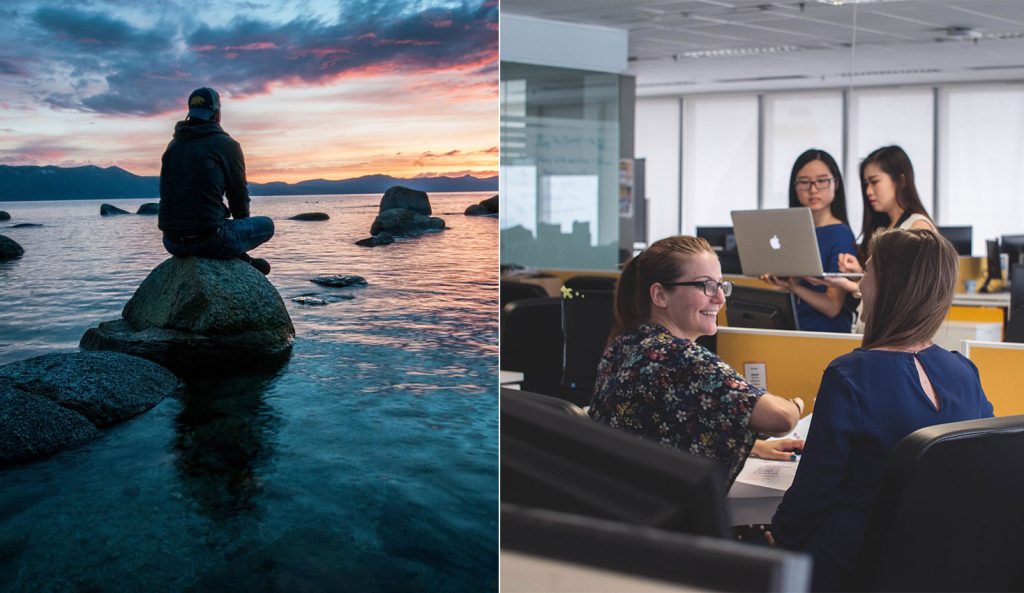
The Importance of Balancing Solitude and Social Interaction
While the benefits of solitude for creativity, productivity, and personal growth are significant, it’s crucial to remember that humans are inherently social creatures. Interactions with others enrich our lives, foster empathy, encourage cooperation, and offer perspectives that can broaden our horizons.
However, just as we need to socialise and connect with others, we also need solitude – a space to retreat, reflect, and rejuvenate. Striking a balance between these two states is key to our overall mental and emotional health. Time spent in solitude can make our social interactions more meaningful, as we approach them with a refreshed mind and a clearer understanding of ourselves.
Solitude: A Tool for Personal Development
Solitude isn’t about shutting out the world permanently; it’s about taking periodic breaks from external stimuli to focus on our inner self. In these moments of quiet, we can engage in deep introspection, better understand our thoughts and emotions, set personal goals, and plan for the future.
Moreover, solitude aids in self-discovery, helping us comprehend our strengths, weaknesses, desires, and beliefs. This understanding is crucial for personal development, as it enables us to make informed decisions that align with our true selves, fostering authenticity and individuality.
Solitaree: A Unique Opportunity to Balance Solitude and Social Interaction
Solitaree’s hermit experiences offer a unique way to embrace the benefits of solitude while maintaining a balance with social interaction. Our tailored experiences allow you to venture into the tranquility of isolated locations, providing the opportunity to connect with your inner self away from the demands of society.
Once you’ve had the chance to enjoy your solitude, our experiences also allow for moments of meaningful social interactions. Our local teams are always available to guide and assist, and you also have the opportunity to engage with local communities where applicable.
In essence, our hermit experiences offer a platform for you to experience the best of both worlds: the enriching solitude that fosters creativity and productivity, and the joy of meaningful social interactions. As you navigate this balance, you’ll discover not only the scenic beauty of remote locations but also the rich terrain of your own inner landscape.
As Rainer Maria Rilke eloquently put it, “I hold this to be the highest task of a bond between two people: that each should stand guard over the solitude of the other.” Through Solitaree, we invite you to stand guard over your own solitude, to cherish it, and to discover the immense potential it holds for your creativity, productivity, and personal growth.
Practical Strategies: Embracing Solitude in Your Everyday Life

While the idea of solitude may seem daunting, particularly in our hyper-connected society, incorporating it into our daily routine can be a transformative experience. Here are some practical tips to start your journey towards beneficial solitude:
Start Small
If you’re new to the idea of intentional solitude, begin with short periods. You might start with as little as 5 to 10 minutes a day and gradually increase this time as you become more comfortable with being alone with your thoughts.
Designate a Solitude Space
Identify a space in your home where you can spend time in solitude. This could be a quiet room, a corner of your garden, or even a comfortable chair. Make this space inviting and free from distractions to encourage regular use.
Incorporate Solitude into Your Daily Routine
Consider incorporating solitude into your daily routine. This could be early in the morning before the day begins, during a lunch break, or in the evening as a way to unwind. Consistency is key, and making solitude a regular part of your routine will make it easier to maintain.
Disconnect
In your solitude time, try to disconnect from electronic devices. This includes phones, laptops, and TVs. By removing these distractions, you’ll be able to fully engage with your thoughts and create a meaningful solitary experience.
Engage in Reflective Activities
Solitude is an excellent time to engage in activities that foster self-reflection and creativity. This could include journaling, meditating, painting, or simply sitting quietly and allowing your thoughts to wander. These activities help to promote introspection and creativity, enhancing the benefits of your solitude.
Be Patient and Kind to Yourself
Remember, the goal of solitude is not to achieve something specific, but to give yourself the space to relax, reflect, and recharge. Be patient with yourself, and don’t worry if your mind seems overly busy at first. With time, you’ll find that you can settle into these moments of solitude and truly enjoy the peace they bring.
Incorporating solitude into your life is a personal journey, and what works best will depend on your lifestyle, preferences, and goals. The most important thing is to approach it with an open mind and a willingness to explore your inner self. Remember, at Solitaree, we’re here to support your journey and offer unique hermit experiences that can aid your exploration of solitude.
How Solitaree Facilitates Solitude
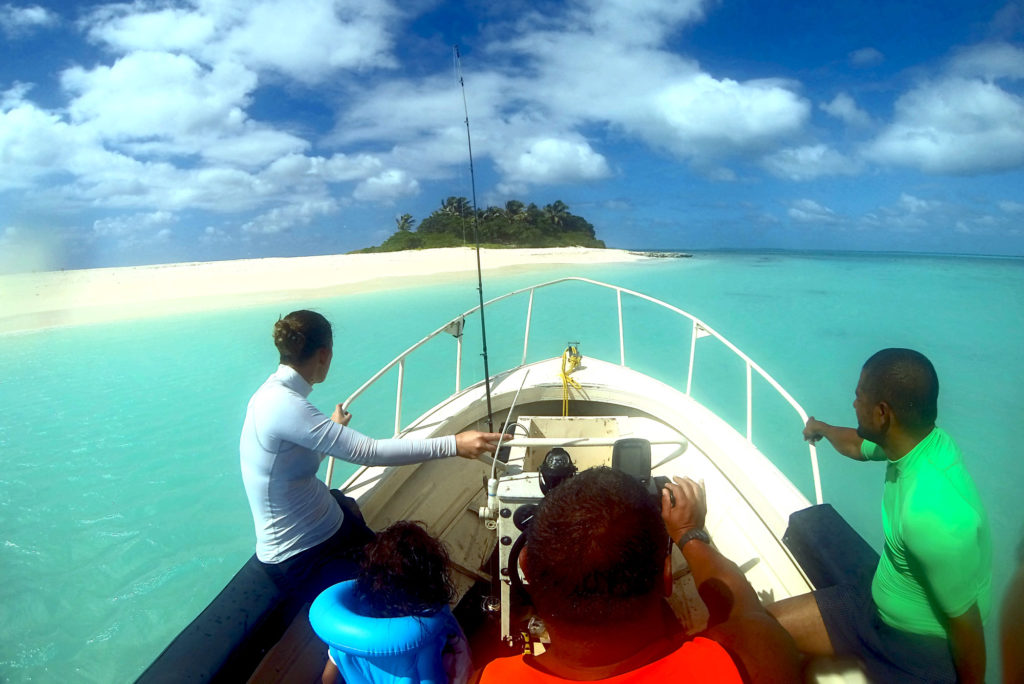
At Solitaree, we have curated a unique blend of experiences to immerse our customers in the rejuvenating power of solitude. Through our distinct hermit experiences, we allow you to explore seclusion in its purest form, crafting a personal journey of self-discovery and introspection that’s beyond the ordinary.
Tonga Hermit Experience: Your Personal Paradise
The Tonga Hermit Experience is one of our signature offerings, where we transport you to a secluded island complete with a basic hut, some sustenance supplies, and a few essential tools. Here, you will be surrounded by the beauty of pristine beaches, rich wildlife, and panoramic views of sunrise and sunset over the tranquil ocean. While this hermitage experience offers more comfort than our survival experience and less luxury than glamping, it strikes the perfect balance for you to experience solitude in its true essence. Your journey to Tonga, one of the last true kingdoms in the Pacific, is sure to rekindle your connection with nature and self.
Chile Hermit Experience: Solitude in the Wilderness
The Chile Hermit Experience presents you with an unparalleled opportunity to embrace solitude amid the raw and untouched wilderness of the southernmost region of Chile. Your humble abode will be a little log hut overlooking the historic Magellan Strait, an almost invisible spot to the digital eye. With no human presence within a 50 km radius, you’ll share your isolation with the rich pre-arctic forest, the playful sea lions, and the salmon in the waters. This experience pushes the boundaries of solitude, challenging you to engage with a sometimes overwhelming environment and transform it into your haven of peace.
Siberia Hermit Experience: Back to Basics
Finally, our Siberia Hermit Experience thrusts you into the captivating beauty and solitude of Siberia. Inspired by the minimalist lifestyle of the Old Believers, this experience promises a deep dive into solitude with its compelling offerings. The dense Siberian forests and the flowing rivers become your silent companions, while the log hut becomes your sanctuary. You are encouraged to live off the land, explore as far as your heart takes you, and engage in deep introspection without distractions. This experience is indeed a return to basics and a profound exploration of what it means to be alive.
Through these experiences, Solitaree empowers you to explore solitude at your own pace, in the manner that feels right for you. Our goal is not only to provide an escape from the everyday hustle but also to inspire a deeper sense of self-understanding and personal transformation. Come, step into the world of Solitaree and experience solitude like never before.
Conclusion
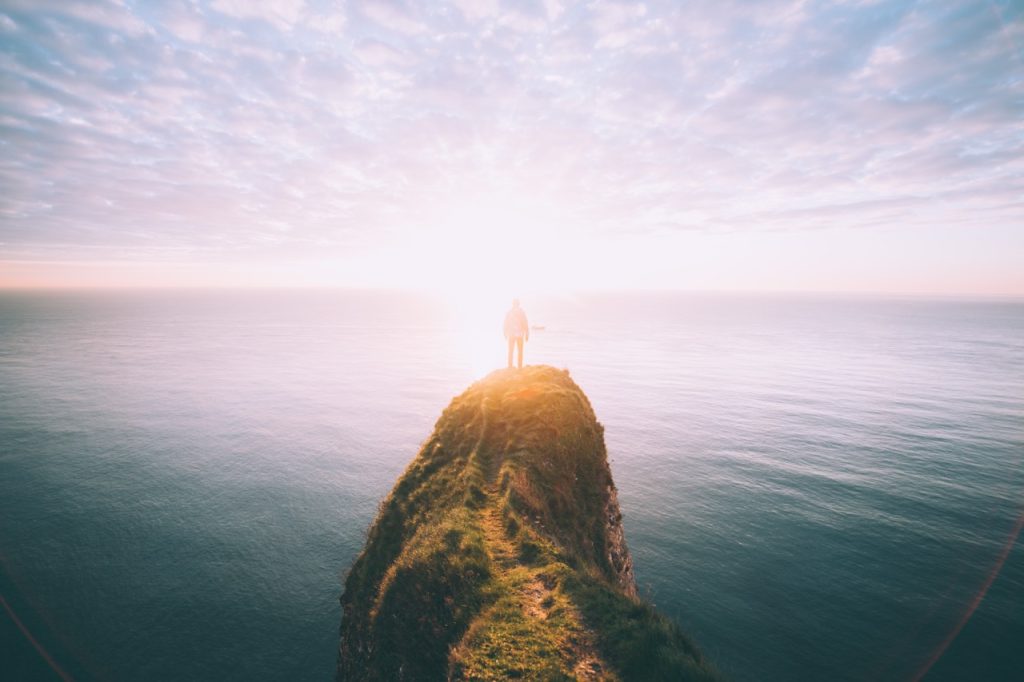
In today’s ever-connected world, solitude has emerged as an essential tool for personal development. Not only does it provide an escape from the daily hustle, but it also significantly impacts creativity and productivity. By finding the balance between social interaction and solitude, we can harness the power of introspection, clear thinking, and renewed creativity. Our daily routines may not always facilitate these periods of isolation; however, integrating solitude into our lives is achievable, with the right strategies and mindset.
Through the experiences offered by Solitaree, the journey to solitude and self-discovery becomes attainable and transformational. Whether you’re a solitude seeker, an adventurer, or someone looking to reset and rejuvenate, Solitaree’s unique hermit experiences are tailored to meet your needs.
If this article resonated with you and you believe it could benefit others, feel free to share its insights. For those feeling intrigued by the transformative potential of solitude, why not delve deeper?
Take a journey through our meticulously curated hermit experiences. Explore the breathtakingly beautiful and secluded destinations we offer. Or, if you’re curious about the range of experiences that suit different comfort levels, discover our diverse range of hermit styles.
At Solitaree, solitude isn’t just an escape – it’s an enriching journey that boosts creativity, productivity, and personal understanding. Why wait? Embark on your journey of solitude today.

